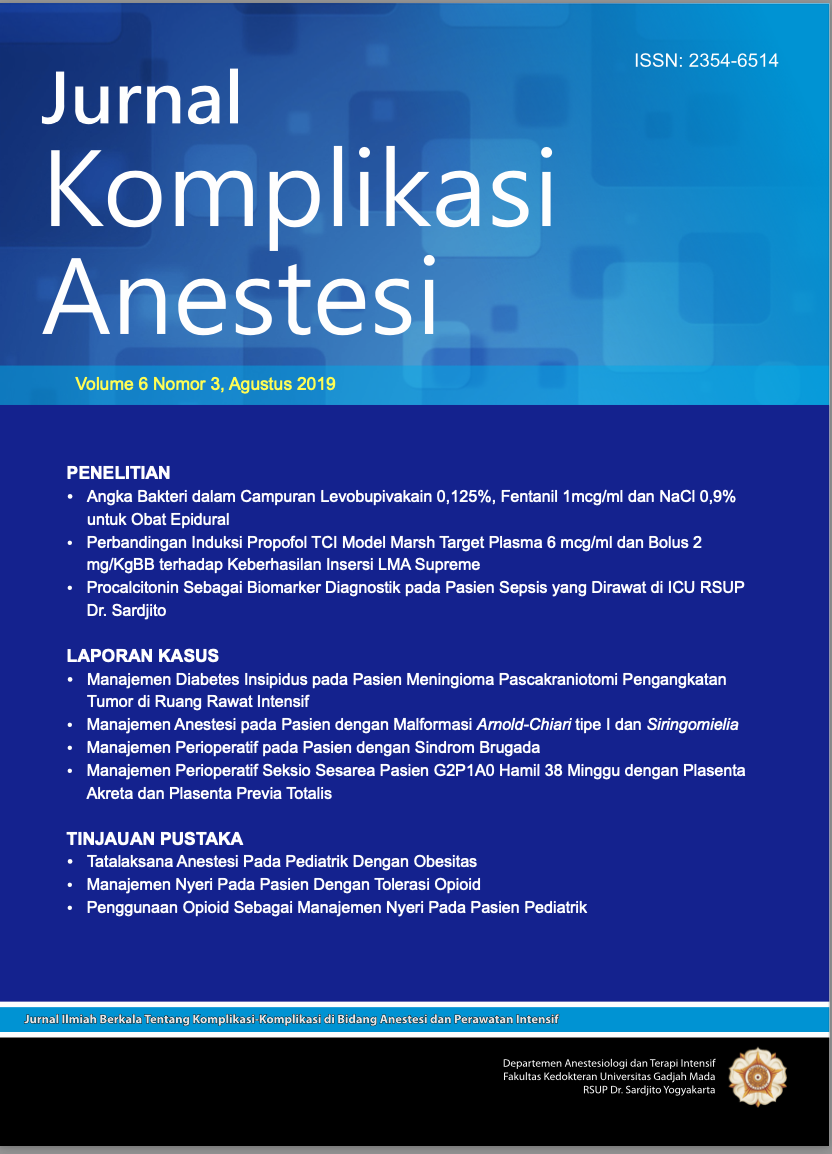Manajemen Diabetes Insipidus pada Pasien Meningioma Pascakraniotomi Pengangkatan Tumor di Ruang Rawat Intensif
Abstract
Surgery in the hypothalamic area is often accompanied by disturbances of water, electrolytes, and osmoregulation due to manipulation and vascular changes of the neurohypophysis. Over the last few decades, surgical approaches to craniopharyngioma have been developed. Initially, tumor resection was the treatment of choice but now evolved to minimally invasive surgery such as transphenoidal surgery. We reported a 58 years old female patient with suprasellar meningioma underwent removal tumor craniotomy. Patient was ASA 2 physical status with controlled Diabetes Mellitus type 2 non-obese. The operation was smooth and hemodynamically stable during surgery. Patient underwent post-surgery treatment in the ICU.
During monitoring in the ICU, urin output of the patient was more than >2 cc/kgBB/hour. From the results
of investigations, patient was diagnosed with Diabetes Insipidus. During the 6 days of ICU care, periodic
examination of serum and urin electrolytes and periodic fluid balances for monitoring, as well as the use of
vasopressin as a management of Diabetes Insipidus were conducted periodically. The patient improved after treatment for 6 days in the ICU, with urin output and electrolytes returning to normal without vasopressin.

Copyright (c) 2019 Calcarina Fitriani Retno Wisudarti, Akhmad Yun Jufan, Irma Yuliani

This work is licensed under a Creative Commons Attribution-NonCommercial-ShareAlike 4.0 International License.
The Contributor and the company/institution agree that all copies of the Final Published
Version or any part thereof distributed or posted by them in print or electronic format as permitted herein will include the notice of copyright as stipulated in the Journal and a full citation to the Journal.
















